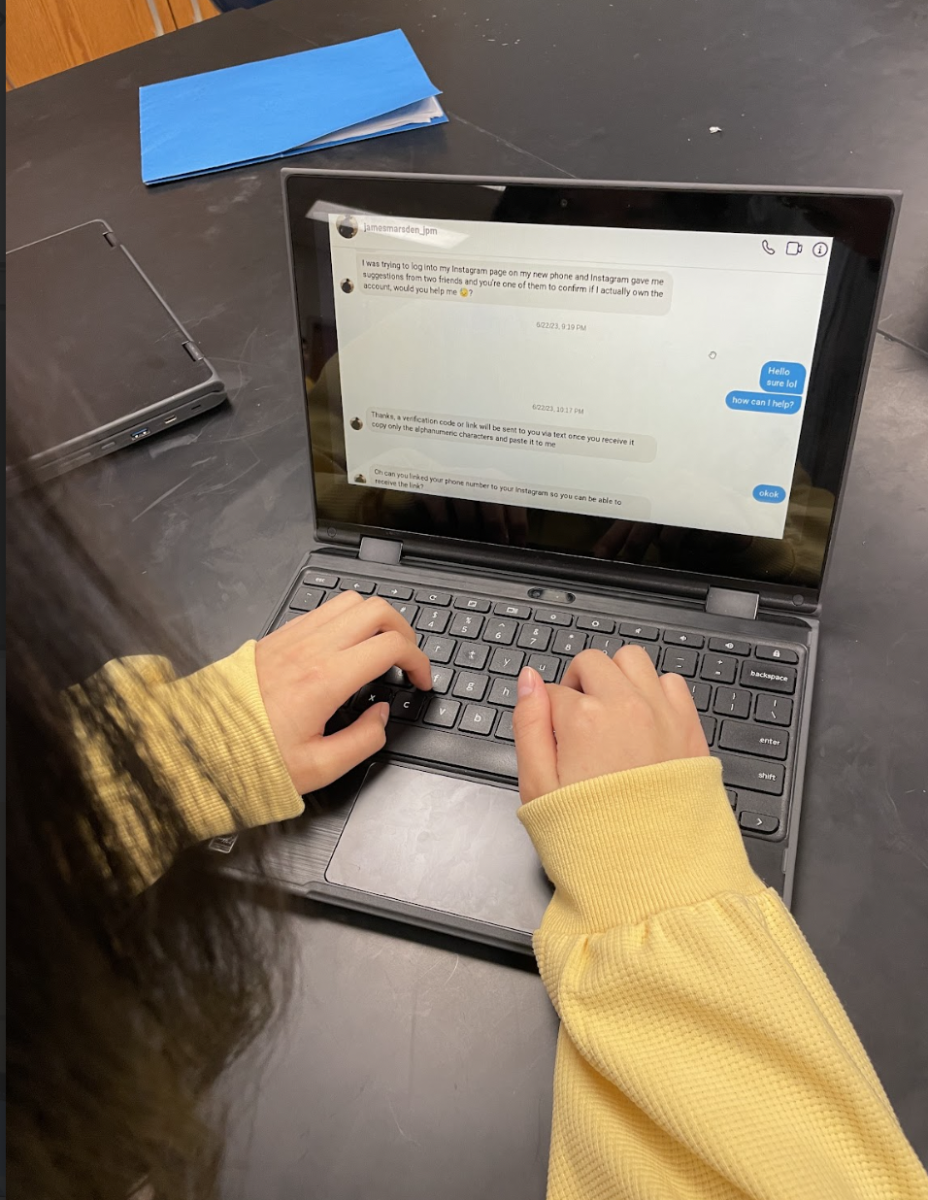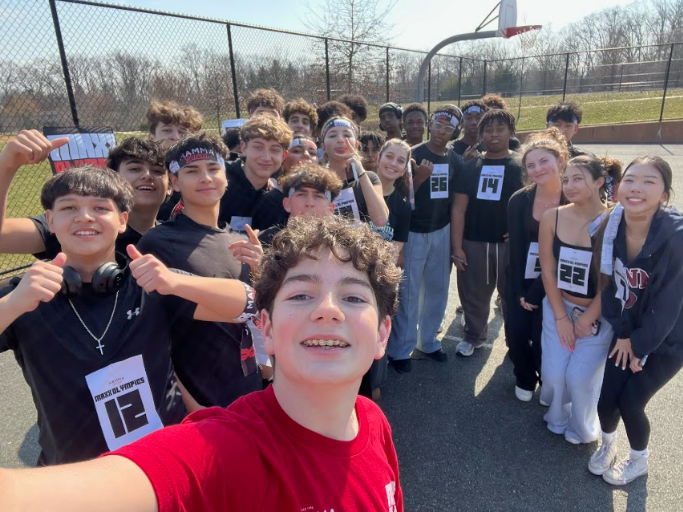From finding a random mutual spewing random promotions on their Instagram story to receiving messages from friends asking to help troubleshoot their suspicious “dilemma,” bots and scammers are found around every corner. Although the vast majority of users know to ignore or block these fake accounts, every-so-often, someone falls for a scam.
Even though it is not uncommon to see fake accounts on social media, teens online are still targets for these online scams and hacks. According to StationX, 85% of Instagram users in 2024 have had their accounts compromised. WCHS sophomore Yingchen Liu is one of many victims who fell for a scam on social media.
“I was messaged around two months after following back [by a fake account] on Instagram,” Liu said. “They basically told me they needed help with [recovering] their account and needed a second person to verify their identity. They sent me an email and asked me to change my original one. Once I did, they logged into my account using that username.”
After gaining access to the account, the hacker often changes the password and locks the previous user out. Many users who are unable to sign back in try to get help from Instagram. Unfortunately, they are most often faced with the fact that their account is lost forever.
“When I [tried to open Instagram, my] account username didn’t work,” Liu said. “It’s funny because at first I actually was confused, but then I realized that my account was stolen.”
Although stealing the account is the end of the road for the previous user, for the hacker it is just the beginning. Hackers usually message friends from the newly gained account to continue their hacking chain, post suspicious ads and links on the account, or even acquire one’s personal information from the account details.
Though Liu’s situation may seem completely avoidable, not all scams are easily identifiable, especially at a glance. Scammers often use accounts they previously acquired to pose as friends by keeping their original posts and acting as them to trick others.
“To be honest, I probably [fell for it] because I didn’t think anybody would even want to steal my account. I only had fifty followers on [it].” Liu said. “I was suspicious but I’m not gonna lie, I kinda just wanted to help them. I really couldn’t tell if it was a scammer or a bot. They didn’t have any links or ads on their profile, just flower posts.”
Although there could be a few instances of genuine need, chances are almost all interactions that begin or end in a suspicious link are dangerous and should be blocked. Many scammers want to add one’s account to their collection in order to further peddle their promotional content. Undoubtedly, preventing themselves from getting hacked should be a top priority for users.
“You can’t tell if it’s a real person or not. I only accept people who are friends or friends of my friends. [I won’t accept anybody] that I don’t know.” WCHS computer science teacher Marla Rudnick said. “I go onto the person’s profile, if it’s public, and I see what they’ve posted. I also go to their friends to see if there are any mutuals. Text your friends and ask if they know them.”
Blocking and limiting accounts that target your social media appears to be the best bet for teens and Instagram users alike seeking to remain undisturbed while scrolling. Although accounts stolen may not have much value on the surface, it is important to also think of what personal information can be found in its details.
“[Hackers] might swoop in on young people or people who are older because they probably don’t have as much knowledge on social media,” Rudnick said. “You definitely need to block people you think are trying to target you.”









